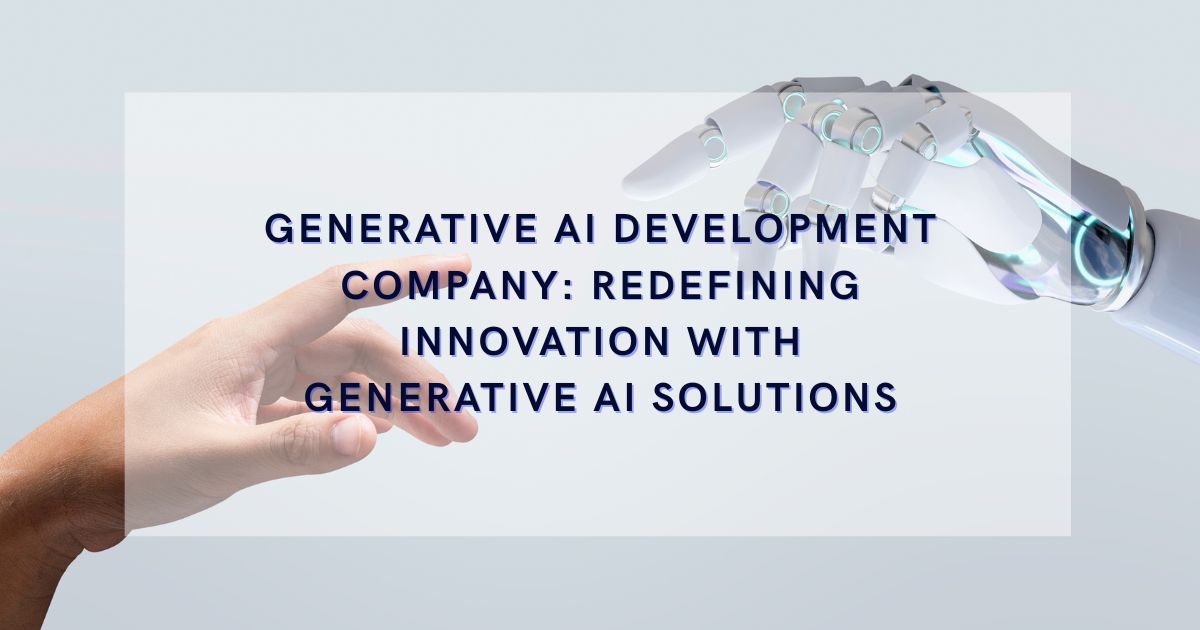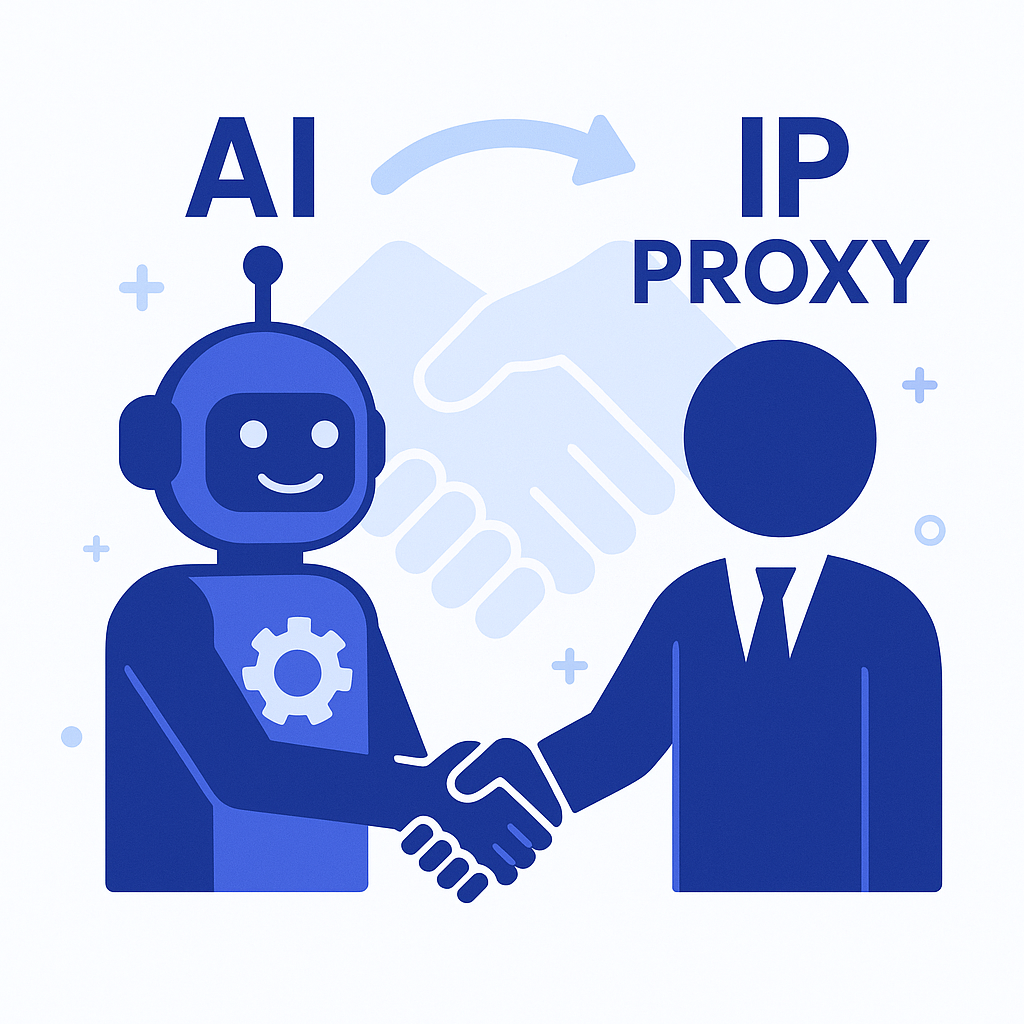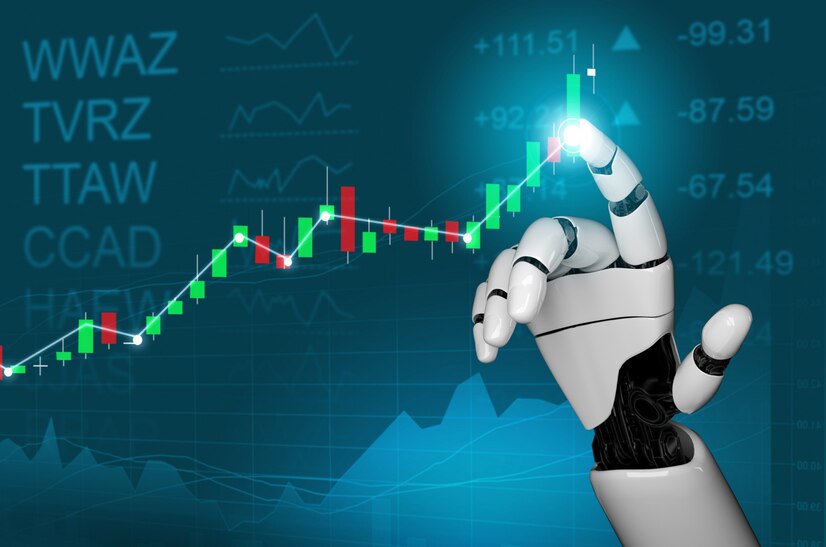Why AI Agent Development Solutions Are the Future of Automation?

Strong 8k brings an ultra-HD IPTV experience to your living room and your pocket.
In recent years, automation has evolved from simple rule-based systems into more intelligent, adaptive, and autonomous processes. At the heart of this transformation are AI agent development solutions—sophisticated systems that simulate human-like decision-making and learning. As we look toward the future, it becomes clear that AI agents will not just enhance automation—they will redefine it.
This blog explores why AI agent development is becoming a cornerstone of modern automation, what makes these solutions so powerful, and how they are poised to transform industries, economies, and even our everyday lives.
What Are AI Agents?
An AI agent is a software entity that perceives its environment, processes input, makes decisions, and takes action to achieve specific goals. These agents can range from simple bots that handle routine tasks to complex, multi-modal systems capable of autonomous problem-solving and continuous learning.
AI agents often combine technologies such as:
- Machine Learning (ML)
- Natural Language Processing (NLP)
- Reinforcement Learning
- Computer Vision
- Robotic Process Automation (RPA)
- Knowledge Graphs
With this technological arsenal, AI agents can operate with minimal human intervention, making them ideal for automating complex workflows.
From Traditional Automation to Intelligent Agents
Traditional Automation: The Legacy Approach
Before the rise of AI, automation largely depended on pre-defined rules and scripts. Tools like RPA were effective in replacing repetitive, structured tasks—such as form filling or data entry—but struggled with exceptions, variability, or unstructured data.
Limitations of traditional automation include:
- Inflexibility: Rule-based bots break when faced with new scenarios.
- Scalability: Adding more bots doesn’t linearly increase efficiency.
- Lack of Learning: Traditional systems don’t improve over time.
- Intelligent AI Agents: The Evolution
AI agents, by contrast, are capable of adapting to new inputs, learning from experience, and even collaborating with humans or other systems. This shift brings automation closer to true autonomy and cognitive capability.
With AI agents, organizations can move beyond task automation to process and decision automation, drastically increasing operational efficiency, accuracy, and adaptability.
Why AI Agent Development Is the Future
1. Scalability and Adaptability
Unlike hard-coded systems, AI agents can scale across departments, industries, and use cases. They learn from data, adapt to changing conditions, and continuously improve performance. This makes them ideal for dynamic environments where flexibility is key.
For example:
A customer service AI agent can handle millions of queries and continuously learn from interactions.
Supply chain AI agents can dynamically optimize logistics in response to real-time disruptions.
2. Cognitive Automation
Cognitive automation blends AI with automation to mimic human reasoning. AI agents use NLP, sentiment analysis, and machine learning to interpret complex data, make decisions, and act appropriately.
Examples include:
- Legal document analysis
- Medical diagnosis support
- Financial fraud detection
These tasks require contextual understanding—something that traditional automation could never achieve.
3. Autonomous Decision-Making
The next frontier of automation involves autonomous agents capable of making decisions without human oversight. These agents use reinforcement learning or planning algorithms to optimize actions toward a defined goal.
Think of:
- AI-powered trading bots in financial markets
- Smart agents managing energy consumption in smart grids
- AI agents handling cybersecurity incident responses autonomously
- This level of decision-making makes AI agents essential for mission-critical applications.
4. Improved Customer Experience
AI agents can create hyper-personalized customer experiences through real-time data analysis and natural language interaction. Virtual assistants and chatbots are just the beginning.
Modern AI agents can:
- Predict customer needs before they arise
- Offer tailored recommendations
- Automatically resolve complaints or process requests
This not only boosts customer satisfaction but also reduces service costs and response time.
5. Seamless Integration with Existing Systems
Today’s AI agent development solutions are built with interoperability in mind. APIs, SDKs, and low-code platforms enable easy integration with legacy systems, ERPs, CRMs, and data lakes.
This means businesses don’t need to overhaul their tech stack to benefit from AI-driven automation—agents can plug into existing environments and enhance them.
6. Real-Time Analytics and Insights
AI agents constantly monitor, evaluate, and generate insights from data. This turns every process they touch into a source of real-time intelligence, which can be used for:
Forecasting demand
- Identifying inefficiencies
- Suggesting process improvements
- This constant feedback loop enables data-driven decision-making at scale.
7. Reduction in Operational Costs
By automating more complex tasks and reducing dependency on human intervention, AI agents significantly cut operational expenses. From handling support tickets to managing HR onboarding, AI agents streamline functions with consistency and speed.
Over time, the cost savings from AI agent implementation can be massive—especially when compared to the limitations and maintenance costs of traditional automation.
Real-World Applications of AI Agents
1. Healthcare
- Clinical decision support systems help doctors diagnose diseases faster and more accurately.
- AI agents schedule appointments, process insurance claims, and even guide patients through treatment regimens.
2. Finance
- Fraud detection agents analyze thousands of transactions in real-time.
- AI wealth management tools act as robo-advisors, offering personalized investment strategies.
3. E-commerce
- Product recommendation engines
- Customer service AI agents (chatbots, voice bots)
- Inventory forecasting and demand prediction
4. Manufacturing
- Predictive maintenance AI agents identify machinery issues before they cause downtime.
- Smart factory agents optimize production lines autonomously.
5. Education
AI tutors adapt to each student’s learning style and pace.
Administrative agents automate grading, scheduling, and communication.
Key Components of AI Agent Development Solutions
To build powerful AI agents, development platforms typically provide:
1. Multi-Agent Frameworks
These allow multiple agents to collaborate, share information, and solve problems collectively—mimicking how teams of humans work together.
2. Natural Language Processing (NLP)
Agents must understand human language to interact effectively. NLP powers chatbots, voice assistants, and document-processing agents.
3. Knowledge Representation and Reasoning
AI agents need to model knowledge about their environment and goals. This is achieved through knowledge graphs, ontologies, and logic-based reasoning systems.
4. Reinforcement Learning Engines
These engines allow agents to learn from experience by interacting with environments and receiving feedback.
5. Low-Code/No-Code Tools
Modern platforms like Microsoft’s Power Automate or OpenAI’s GPT agents offer drag-and-drop interfaces to create and deploy agents without deep coding knowledge.
6. Security and Compliance Modules
Enterprise-grade agent development solutions must ensure data privacy, compliance with regulations (GDPR, HIPAA), and secure interactions.
Challenges to Consider
Despite their promise, AI agent development does come with hurdles:
1. Data Dependency
Agents require vast, high-quality data to learn effectively. Poor or biased data can lead to inaccurate decisions or ethical issues.
2. Black Box Problem
Many AI models (especially deep learning-based agents) are opaque, making it hard to understand how decisions are made.
3. Security Risks
Autonomous agents, if compromised, can take damaging actions. Robust security protocols are essential.
4. Integration Complexity
While modern platforms aim for seamless integration, real-world IT environments can be messy. Ensuring agents work harmoniously across systems can be a challenge.
5. Ethical Considerations
AI agents acting on behalf of humans must be aligned with ethical standards—especially in areas like healthcare, criminal justice, and finance.
The Road Ahead
AI agent development is not just a tech trend—it’s a paradigm shift. With continued advancements in AI, edge computing, cloud infrastructure, and quantum computing, the future possibilities for AI agents are immense:
Digital twins of organizations where AI agents simulate and optimize entire business operations
AI governance agents that monitor compliance and ethics in real-time
Personal AI agents that manage your day, from scheduling to financial planning
In the near future, we might each have our own persistent digital agents—much like having a super-intelligent executive assistant who never sleeps.
Conclusion
AI agent development solutions represent the next phase in the evolution of automation. Where traditional automation hits walls of complexity, adaptability, and intelligence, AI agents break through with learning, reasoning, and autonomy.
They are not just tools—they are collaborators. From revolutionizing customer service to optimizing global supply chains, AI agents are reshaping how work is done.
Note: IndiBlogHub features both user-submitted and editorial content. We do not verify third-party contributions. Read our Disclaimer and Privacy Policyfor details.







